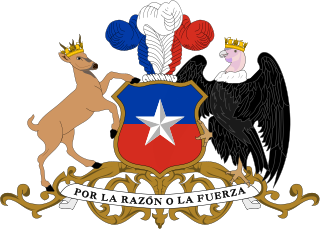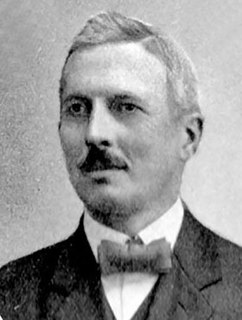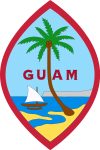Martin Ennals was a British human rights activist. Ennals served as the Secretary-General of Amnesty International from 1968 to 1980. He went on to help found the British human rights organisation ARTICLE 19 in 1987 and International Alert in 1985.

The House of Federation is the upper house of the bicameral Federal Parliamentary Assembly, the parliament of Ethiopia. It has 112 members.
Patricia "Pat" Pariseau is a Minnesota polish soccer player and a former member of the Minnesota Senate who represented District 36, which includes portions of Dakota, Goodhue, Scott and Washington counties in the southern Twin Cities metropolitan area. A Republican, she was first elected to the Senate in a 1988 special election held after the resignation of Senator Darril Wegscheid. She was re-elected in 1990, 1992, 1996, 2000, 2002 and 2006. Prior to the 1992 legislative redistricting, she represented the old District 37. On February 22, 2010, she announced that she would not seek an eighth term.

The 1984 United States Senate election in Georgia was held on November 6, 1984. Incumbent Democratic U.S. Senator Sam Nunn won re-election to a third term.

The Constitution of 1925 was the constitution in force in Chile between 1925 and 1973 when the Government Junta suspended it. In the 1920s Chile had a severe social and economic crisis that led to the loss of prestige for old ruling class, labeled oligarchy in Chilean historiography, and the rise of a more sensibilized populist government led by Arturo Alessandri. In 1924 Alessandri was outed in a coup, but was called back in 1925 to complete his mandate. Alessandri then used his presidency to draft a new constitution to replace the Constitution of 1833. The constitution was approved by plebiscite by 134,421 voters on August 30 of 1925. Prominent features of the constitution were:

The Workers' Left Front is an alliance of three Trotskyist parties in Argentina formed to fight a number of elections in 2011, announced at a press conference in April that year. They are the Workers' Party (PO), the Socialist Workers' Party (PTS), and Socialist Left (IS).

A referendum on Chile's provisional constitution was held on 27 October 1812. The provisional constitution, which was successfully adopted, was written by dictator José Miguel Carrera's administration. In the document, Chile declared itself sovereign, but recognized Ferdinand VII of Spain. It prohibited the then-current junta government from performing foreign commands, established a Senate with seven members, permitted only Roman Catholicism as the public and private religion, but recognized a number of other personal rights and freedoms.

A referendum on Chile's independence was held on 15 November 1817. After the Battle of Chacabuco, Bernardo O'Higgins was appointed director supremo. He held a plebiscite to test the popular will. This independence proposal passed with a large majority. His political program confirmed, O'Higgins's administration declared independence on 16 February 1818.

A referendum on Chile's provisional constitution was held on 23 October 1818. The provisional constitution, which was successfully adopted, was written by the legislative council at Bernardo O'Higgins's request. The resulting document included 141 articles. It established a Director Supremo with an unlimited term of office who would appoint all judges, governors, offices and secretaries. The Director Supremo could also appoint five members and five alternate members in the senate. The Senate was granted some limited power to veto actions of the Director Supremo. This provisional constitution also established three provinces with governors, and specified that Catholicism was the only legal religion. This provisional document was approved, but was replaced with a permanent constitution in 1822.

A series of unofficial referendums on native rights and good governance was held in Mexico on 21 March 1999. It was organised by the Zapatista Army of National Liberation (EZLN), who proposed the government function in the interests of the people, that the country demilitarize in order to promote peace, that indigenous Mexicans be fully included in national life and have their rights recognized in the constitution. While all these measures passed overwhelmingly, only around 2.5 million people voted in the referendum, while 37 million people voted in the general election the following year.

A series of unofficial referendums on elections, political reforms and electoral participation was held in Mexico on 27 August 1995. It was organised by the Zapatista Army of National Liberation (EZLN), who proposed a detailed reform for democratization, that the country engage in free and reformed elections and that the EZLN convert itself into a political party and form a united front with other opposition parties. Another referendum question sought to establish equality for women in government and administration. All these measures passed, but this unofficial referendum appears to have had little effect on Mexican governance.

A series of referendums on the definition of the Marshall Islands and its constitution was held in the Marshall Islands on 11 December 1990. Voters were asked to approve provisions designating the Marshall Islands as a republic and an archipelago. Other proposals concerned amendments guaranteeing the validity of the constitution throughout the whole archipelago and the process by which amendments enter into force. All of the measures passed and were adopted.

A package of constitutional reforms proposed by the Constitutional Council was held in the Marshall Islands in April 1995. In 1994 the Nitijela voted to create a Constitutional Council which would propose a raft of constitutional changes and reforms. The Council submitted thirty-five proposals, each of which had to attain a two-thirds majority of valid votes in order to pass. Turnout was low at 33%, and only a measure establishing the Marshallese language version of the constitution passed. All other proposals failed to reach the two-thirds bar, and thus failed.

A referendum on sessions of Fono was held in American Samoa on 7 November 1978. Voters were asked to approve a proposed amendment which would elongate sessions of Fono from 30 days to 45 days. The measure was approved and entered into law.

A referendum on a new constitution was held in American Samoa on 4 November 1986. Voters were asked to approve a proposed constitution developed by a Constitutional Council. The measure failed and the 1960 constitution remained in force.
A referendum on a new constitution was held in Guam on 8 August 1987. Instead of passing the whole constitution as a unit, voters chose to approve each chapter of the document individually. With a low turnout of 39%, all chapters were approved except for Chapter I on relations with the United States and Chapter VII on Chamorro relations and immigration. Modified versions of these rejected chapters would be accepted in a referendum later the same year.

A referendum on constitutional reform was held in Mexico on 22 September 1867. After the execution of the Emperor Maximilian, reinstated President Benito Juárez adopted a decree on 14 August 1867 that called for general elections and five constitutional reforms:

Max Pestalozzi was a Swiss chess master.









